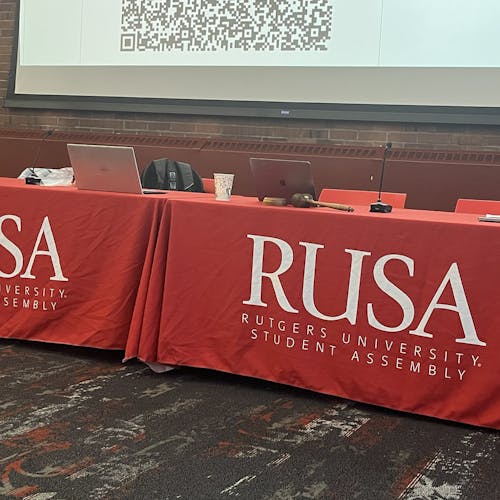School of Communication & Information hosts talk on ethnography, data collection in US, China

On Friday, the School of Communication and Information hosted a webinar titled "Ethnographies of the Datafied State," according to an announcement by the School of Communication and Information.
Panelists Burcu Baykurt, an assistant professor in the Department of Communication at the University of Massachusetts Amherst, and Chuncheng Liu, a postdoctoral researcher at Microsoft Research New England, discussed the potential impacts of automation and related technologies on social infrastructure systems, as well as ethnographic research strategies in this field of study, the announcement read.
The panel opened with Baykurt discussing her personal experience with a smart city project in Kansas City, Missouri. She said that this project saw roadblocks stemming from failures in governing approaches and noncooperation in sharing information.
"But it is true, perhaps ironically, that ignorance was very much part of the smart city, as these public officials were trying to govern with data. And this ignorance partly was systematically produced because tech companies were very reluctant to share information," Baykurt said.
She broke down the uses of ethnography into three key facets: demystifying data use in a state of governance, counting and tracking counting systems in a data set and identifying overlap between governments and businesses.
Ethnography offers insights into the labor involved in creating and maintaining data-driven systems, such as COVID-19 dashboards, she said. Other aspects of this work include navigating political motivations and adjusting to changing circumstances, according to Baykurt.
"Ethnography of the datafied state would highly benefit from studying these more mundane, seemingly less contentious parts of upkeep and what kind of work that constitutes. Because at the end, I really think these are very political and socially and culturally shaped decisions too," Baykurt said.
The discussion continued with Liu's presentation, which focused on the study of the social credit systems in China.
Liu said that, during this project, he ran into some difficulties working with state-sponsored groups. Figuring out how to access information without facing repercussions was a concern, especially because Liu is not a U.S. citizen, he said.
He said ethnography became useful for him as it helped to understand the human labor and contextual factors behind data production.
More specifically, Liu said networking within state offices can provide crucial access to key individuals and data sources. By building relationships with local bureaucrats, researchers can gain insights into how data is processed within the state structure.
"I think it's very important to still remember that those are networks of people that you can, to some extent, invade and to take advantage and flow with them to get more data you actually need," Liu said.
When asked about access issues, Baykurt said she did not face the difficulties that Liu did. Rather, she said the local government was enthusiastic about her research.
Liu added that he found accessing information easier when collaborating with academic institutions because they valued the pursuit of knowledge.
"You can try different lower-ranked officials, lower-end institutions, and start from there, working with them, trying to make them understand that at least not (to be) annoyed by your existence," Liu said. "And at that time, you can start to ... expand your network. So, that's what I found has been more helpful."



